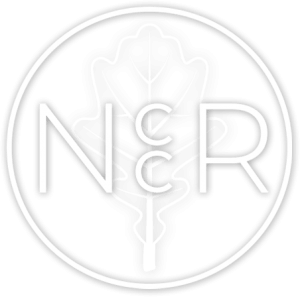Depression – What is it?
Depression is one of the most common mental health disorders in the United States. An estimated 17.3 million adults experienced at least one major depressive episode in 2017, according to the Substance Abuse and Mental Health Services Administration Survey.
A depressive episode, commonly referred to as depression, occurs in the context of a depressive disorder, which is a class of mood disorder that derives from an interaction of biological, psychological, and social factors. It is very different than feeling sad or blue from time to time, which is considered normal and healthy. Many people may even feel depressed at times, but do not have a depressive disorder, sometimes called a “clinical depression”.
Depression can occur in episodes of varying severity throughout one’s life as is the case for Major Depressive Disorder or less severely over a two year period as is the case for Persistent Depressive Disorder, also called dysthymia. Individuals may also experience depression in the context of seasonal changes, during pregnancy, or postpartum. As you can see, depressive disorders exist on a continuum and varies a great deal in terms of type and severity.

Signs of Depression
Despite presenting in a variety of ways, all depressive disorders include similar symptoms that involve mood dysregulation. Depressive symptoms are perhaps better understood by what someone is no longer able to experience rather than the presence of sadness, for which depression is typically most known. For example, many people experiencing depression lose access to the feeling of happiness, hope, or a sense of self-worth. They are not just feeling chronically sad, but also experiences an absence of the ability to feel pleasure. This symptom can include or lead to a loss of interest in previously enjoyed activities or energy to engage with daily tasks. For many, depression includes somatic components such as the loss of sleep, weight, appetite, and sex drive. These can have a great deal of impact on one’s interest in daily life as well as their ability to concentrate or think.
Depression Symptoms
As you can see, the impact of depression can be profound and deeply disruptive to one’s ability to function and enjoy daily life. For some experiencing depression, they may find that in addition to losing access to previous feelings, abilities, thoughts, and sensations that they also experience added depressions symptoms such as over sleeping, crying spells, agitation or irritability, and thoughts about wanting to die. This later symptom can be particularly dangerous. Suicide is the tenth leading cause of death in the United States, accounting for more than 1% of all deaths. It is estimated that 30-70% of suicide victims suffer from major depression or bipolar disorder. If you are experiencing thoughts about wanting to hurt yourself or attempt suicide, please call 911 or your local emergency number immediately. If someone you care about is depressed, or you worry about their safety -trust your instincts and reach out to a professional for ways to best support yourself and those you care about.
What Causes Depression?
Like many mental health disorders, the cause of depression is complex. No two people have the exact same symptoms and yet both may meet criteria for a diagnosis of clinical depression. Similarly, whereas some people may require brief therapy or medication, others may require long term treatment. While we may not be able to discern a single cause for depression, we do know of many factors underlying and contributing to it. These factors can include genetic vulnerabilities, one’s temperament, mood dysregulation in the brain, stressful life events, early childhood loss and trauma, as well as seasonal changes, medical disorders and certain medications.
Many people that are diagnosed with depression often develop anxiety disorder and vice versa. Their causes, symptoms and treatment can even overlap. There is plenty of great content available on anxiety on the web.
This service is *ONLY OFFERED BY seasoned therapists at NCCR.
Depression Treatment
Not having one specific source or explanation for depression can feel discouraging, but that does not mean it cannot be treated! In fact, when you meet with a psychotherapist at the NC Center for Resiliency, they will help you decide which psychotherapeutic approach and lifestyle changes are necessary as part of your treatment plan to address a depressive disorder. This can include a variety of psychotherapy modalities, referral to a trusted psychiatrist, integrative or naturopathic doctor, recommendations for exercise, and so on.
Somatic Approach to Depression Treatment
As a somatic psychotherapy practice, the NC Center for Resiliency focuses on how clinical depression may be influenced by nervous system dysregulation rather than solely thoughts and feelings. This approach is sometimes referred to as “bottom-up” rather than “top-down,” because it focuses on shifting sensations in the body rather than changing thoughts and feelings. Thoughts and feelings are viewed as important, but they are understood to be secondary responses to automatic sensations and experiences in the body. These bodily responses are related to functions of the brainstem and central nervous system, which produce a wide range of hormonal and mobilizing responses in the body when under stress. By focusing on sensations and nervous system activation, a somatic therapist supports individuals with depression to track and name the ways that depression manifests for them personally. Once a Client can do this, they are supported in a variety of ways to shift their physiology. For a description of some of the specific somatic approaches to depression offered at the NC Center Resiliency, please scroll down to the section entitled Somatic Approaches to Depression.
For some Clients a purely somatic approach is not desirable or indicated. In addition to somatic modalities, psychotherapists at the NC Center for Resiliency are also trained in a variety of traditional approaches to psychotherapy that have also been found to be effective in treating depression. These modalities include Cognitive, Interpersonal and Psychodynamic Psychotherapies. For an in depth outline of these approaches and many others available for depression, feel free to take a look as the National Institute for Mental Health’s summary on available treatments for depression.
Somatic Modalities Used at NCCR
There are two main somatic modalities used at the NC Center for Resiliency: sensorimotor psychotherapy and somatic experiencing. Sensorimotor and somatic experiencing practitioners understand depression in terms of how it results from and impacts the autonomic nervous system. You may have heard of the fight, flight, freeze response, because it is commonly used to explain how animals, including humans, respond to stress. Put most simply, each response describes the physiological state in the body that activates when it’s necessary to quickly respond to threat. Our first defensive response is flight, which we use in unsafe situations to flee to a safer one. When we are unable to flee, we tend to use healthy aggression and boundary setting to defend the self. This response is called the “fight” response. Our third defensive response is commonly referred to as a “freeze,” but can also be referred to as a collapse. This defensive strategy is used when one perceives an inescapable threat and feigns death or “plays possum,” as it is sometimes called. In other words, when the ability to flee and fight are unavailable, a freeze response is the next best option to survive life threatening situations. The physiological response is characterized by low heart rate, emotional and physical numbing, cold limbs, slowed thinking, and a felt sense of heaviness in the body, which are often observable in a clinical depression.
To treat depression from this perspective, a somatic practitioner helps Clients identify situations that trigger increased depressive symptoms. For example, the Client notices that their sleep is disrupted, or they noticed increased emotional numbing or fatigue when holding a certain body posture. Once the Client can track and name their sensations and moment by moment experiences, the somatic therapist supports Clients to identify alternative responses to perceived threats. In so doing, the Client begins to find they have much more choice and agency in the here and now, rather than left with the feeling of helplessness and hopelessness ever so common in clinical depression. Over time, Clients with depression begin to shift their patterned response of freezing and regain access to alternative responses, such as turning away when overwhelmed, setting boundaries and healthy limits when angry or feeling unsafe, and turning towards others for support as needed.
Somatic interventions are highly experiential, meaning they are not introduced only through talking, but also through activities, movements, and self-regulation tools that physically introduce ways to respond differently to stress and overwhelm. This type of learning can be especially impactful for people with depression who may struggle to self-motivate moving or engaging their body without active, real time support. In addition to facilitating new ways to understand sensation and new ways to respond to them, a somatic therapist will also be helping their Clients to notice how doing so can change their moment by moment feelings, thoughts, beliefs, and sense of self. These interventions can greatly support traditional talk therapy interventions that may be used in conjunction with somatic modalities.

Call NC Center for Resiliency for Depression Treatment
Clinical depression is one of the most common mental health disorders in the United States. It has deleterious effects on one’s social and emotional wellbeing and can hinder one’s ability to function in daily life. While the cause for depression is multidetermined, it is treatable through a variety of psychotherapeutic modalities. Medication and traditional talk therapies such as Cognitive Behavioral, Interpersonal and Psychodynamic treatments are found to be highly effective in treating depression. At the NC Center for Resiliency, we provide a somatic framework and integrate somatic modalities to support the alleviation of symptoms associated with clinical depression as well as to address past trauma potentially underlying a depressive disorder. If you or someone you care about is struggling with depression, get in touch with the NC Center for Resiliency today to see if our team of dedicated and highly trained clinicians can help you get out of a patterned freeze response and into a state of resiliency in the here and now.
